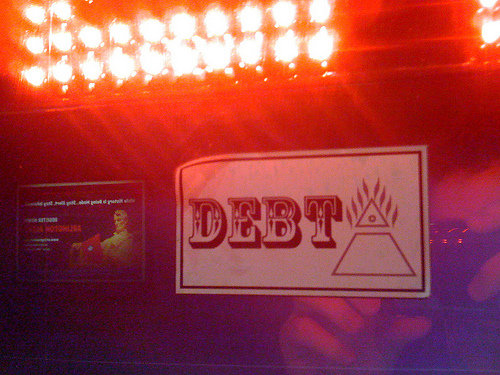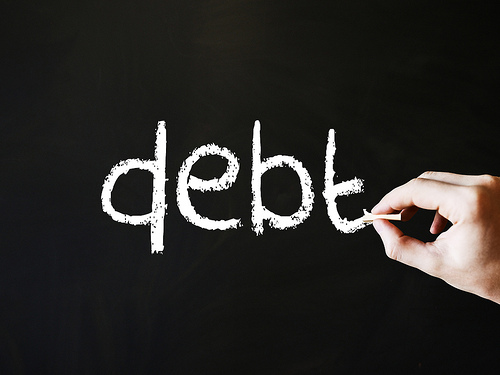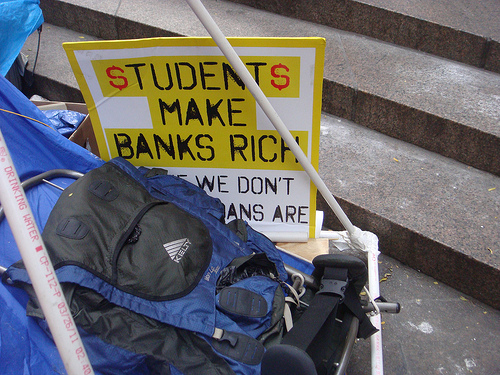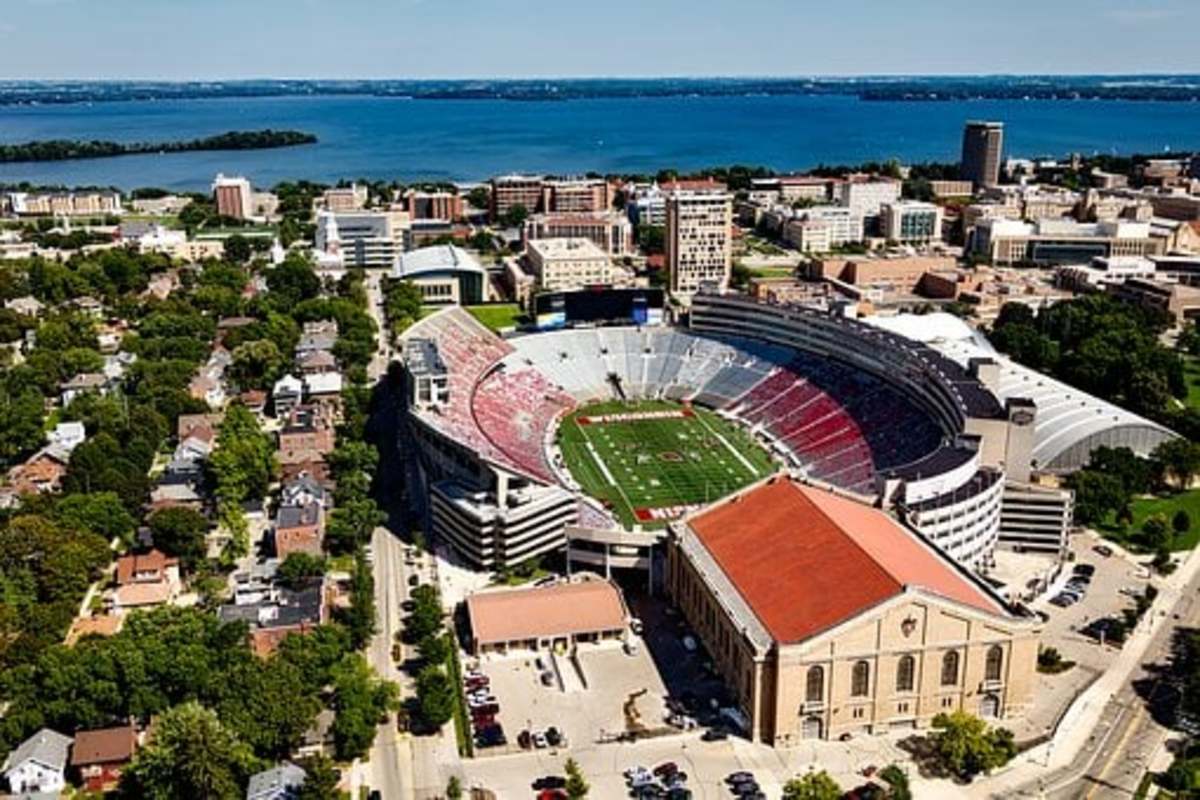What Happens if You Don't Pay Your Student Loans
The Danger of Student Loans
Americans owe a collective $1.2 trillion dollars in student loans. Many borrowers cannot afford to pay them back. Currently, there is a 10 percent default rate.
This figure is expected to swell, because students and their parents have overextended themselves. This was done trying to catch a piece of the American dream.
They are victims of the times. Yet, they are not really victims. When you borrow money, it's done with the knowledge that it needs to be repaid.
However, in recent decades, there's been very strong societal pressure. Students were encouraged to attend a top school. It's assumed that what they put into a college education would pay dividends. And that they'd quickly recoup this investment after graduating and landing a good job.
However, this scenario didn't always play out. Many degree-holders are now unable to find well-paying work in their field. A four-year degree also doesn't have the same value it once did. In fact, it's becoming more akin to what a high school diploma used to be.
Those who cannot repay student loans don't have an out. This debt can's be discharged in bankruptcy court. It will follow you to your grave, and sometimes beyond.
Student Loans are Not Erased in Bankruptcy

The Student Loan Scam
How Much Does Each Student Owe
Students who graduated in 2012 did so with an average of $29,400 in college loans, according to the Student Loan Project, an advocacy group trying to raise awareness of the student loan crisis. This figure does not include credit card debt, and anything parents might have borrowed.
Colleges the ruinous Parent PLUS loans, which are extremely easy to get, and notoriously difficult to repay, because borrowers are allowed to overextend themselves.
Oftentimes, as reported in published accounts, parents take these out in their own name, with the idea that their children will help out. However, the parents are legally responsible for the debt.
The Student Loan Project website also contains many stories of graduates who deeply regret their decision to borrow so heavily.
Student Loans - The Debt that Never Goes Away

The Higher Education Bubble
Student Loan Horror Stories
Many posters on the Student Loan Project forum made bad financial decisions. They are aware of that. Yet there were also confident that getting their degree, even from a very expensive college, was a good investment. From a very young age, students are told they "have to go to college."
In high school, they attend college fairs, where they meet representatives from prestigious institutes. Then they take campus tours, where they are subjected to intense sales pitches from admissions officials.
Tuition hikes at colleges and universities in the United States continued unabated. Since 1982, tuition prices have risen 489 percent, according to Glenn Harlan Reynolds, a professor at the University of Tennessee and author of The Higher Education Bubble.
This is much more than the American market can bear. Increasingly, institutes are welcoming wealthy foreign students, who can afford $240,000 or more for a four-year degree from an private school, or about half that price if they attend a public flagship.
At the same time, financial aid packages have increasingly awarded loans instead of grants, if families cannot cover tuition costs.
Student Loan Terms
Stafford Loans
| Parent PLUS Loan
| Private Loan
| Subsidized Loan
|
|---|---|---|---|
These loans are issued by the federal government. There are yearly limits on what can be borrowed. A freshman, for instance, may borrow a maximum of $5,500.
| These federal loans have drawn controversy over whether they are sometimes issued to people who will have trouble repaying them. There are very easy to get, and can be borrowed for the maximum needed to meet tuition, room and board.
| These are considered the riskiest, because they often don't have safeguards and usually have high interest rates.
| This is a federal student loan that does accrue interest until after graduation. These are issued according to financial need.
|
Finding the Right School at the Right Price
The No-College Option?
Some voices warn about getting caught in the "college trap." They tell you to go straight into the job market, and not worry about furthering your education. College, they say, is no longer worth it.
However, this vocal minority does not offer a solution to the problem of how you'll land your first white collar job. If you don't go to college, and don't have a highly marketing skill, such as being an information technology expert, then career choices are limited.
Although the value of a college education is less than it once was, employers still look for this all-important credential.
An All-Too Common Student Loan Story
One poster on the Student Loan Project site named Christen explained how she assumed it was alright (and expected) to take on heavy debt. That's because she was also told she'd soon cover these costs, once she was working. She attended a private school, as did her husband. This was where they met.
With the economy in shambles, they decided to take out even more loans to earn their master's degrees. However, neither has been able to find a lucrative job. He works as a security guard and she is a teacher. Together, they owe $300,000.
Repaying them at $3,000 a month would eventually allow them to crawl out of this mess. However, between them, they only earn $2,800 a month.
These loans will probably be with them until they die. In the meantime, they can expect interest to continue to accrue. A portion of their paychecks, tax returns and even their Social Security payments will be garnished.
There are even stories of private lenders putting pressure on parents who've children have died, or are now disabled, and, therefore unable to pay their debts. Financial experts generally advise taking out a life insurance policy on your child if you co-sign a private student loan.
Graduates who default on loans also have a big handicap in the job market, making it even more unlikely they'll ever climb out of the hole. If they work in a licensed profession, they'll run into difficulty renewing their license with this unpaid debt.

Graduates Who Took on Too Much Student Loan Debt
Reducing the Cost of College
Avoiding Heavy Student Loan Debt
Unless you have a trade, such as plumbing, a college degree is practically a necessity in the current job market. College graduates still have a lower rate of unemployment than people with just a high school degree. So it's true that you do have to go to college.
However, there are also ways to reduce the cost of higher ed. One is to attend a public university within commuting distance. Living at home allows you to save money on dorm and dining hall expenses.
You can also reduce expenses by taking dual enrollment classes while in high school. These are courses that allow you to earn high school and college credits at the same time.
Parents should be especially wary of federal Parent PLUS loans. These are issued by the college as a means of bridging the gap between what a family has saved toward tuition, toward the cost of attendance, minus financial aid. These loans are widely blamed for pushing the cost of education to unattainable heights.
There is a 4.2 percent fee to process these loans, which must then be repaid at an additional interest rate of 6.41 percent.
Even people with bad credit have been able to secure these loans, which have no way of being discharged. Stories abound of people losing any prospect of retiring, because they've taken on too much Parent PLUS debt. It's not surprising that many have gotten caught. These loans are marketed to the very families who've had difficulty saving enough for college in the first place.
Under the current law, up to 15 percent a borrowers disposable income can be garnished. So can a portion of your Social Security check. The default rate on Parent PLUS loans is currently reported at 7 percent.
For Additional Reading
- Project on Student Debt: Home
Raising awareness about rising student debt and developing practical solutions to increase college access for all students. - How a Parent PLUS Loan Can Destroy Your Life
College tuition has increased to where it's no longer affordable for the average family. Parent PLUS loans are part of the problem.
Disclosure
I am a participant in the Amazon Services LLC Associates Program, an affiliate advertising program designed to provide a means for sites to earn advertising fees by advertising and linking to amazon.com.












